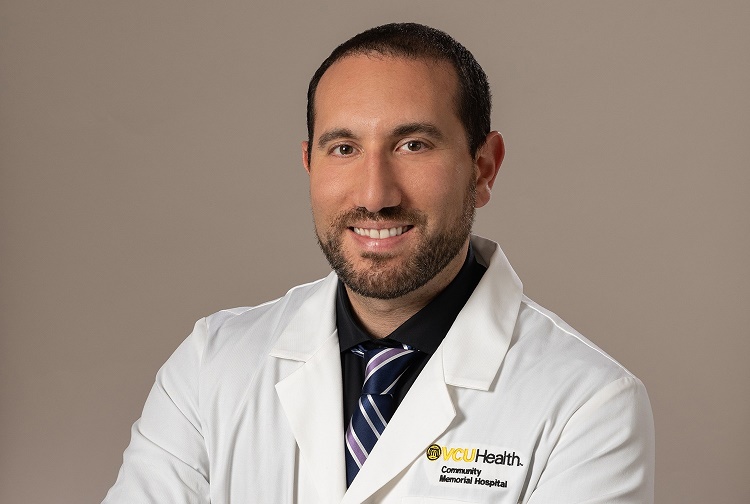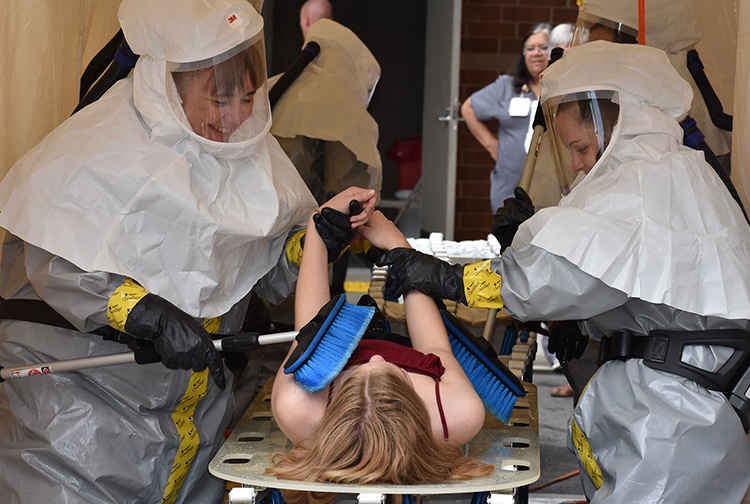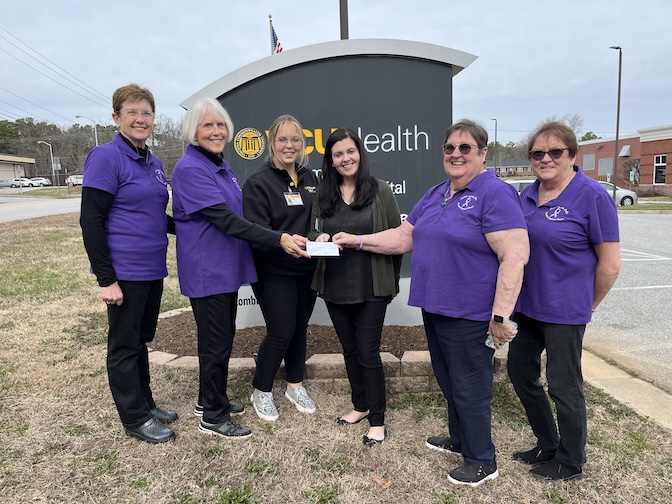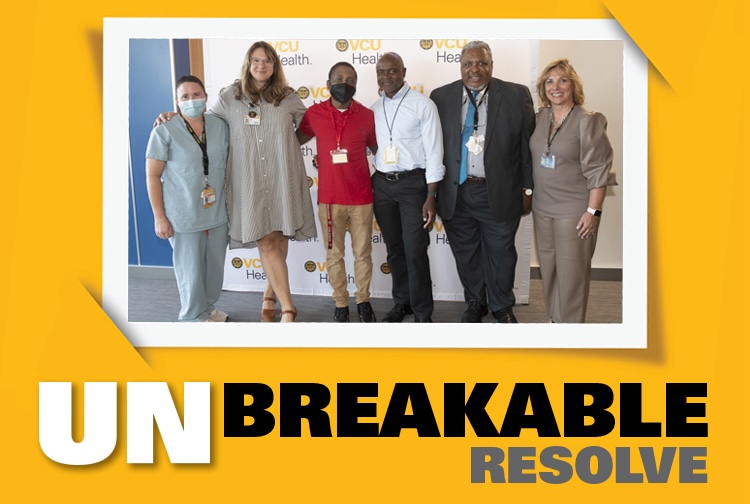
Nicotine patches for neuropathy?
One clinical trial in South Hill, Virginia, is testing to see if nicotine is beneficial for cancer survivors
August 17, 2022
VCU Massey Cancer Center patients are participating in several clinical trials in South Hill, Virginia. We are highlighting four here: lung, kidney, breast and one for improving quality of life for cancer survivors through nicotine patches.
"We usually focus on interventional cancer trials, the objective being survival," said Nemer El Mouallem Jr., M.D., a hematologist and medical director of the VCU Massey Cancer Center in South Hill. "This year, we have a survivor trial, also known as a nontreatment trial, with the goal of improving quality of life in patients who have already completed cancer treatment."
How is an addictive substance doing good?
When cancer patients undergo chemotherapy, 60%-70% experience peripheral neuropathy, or nerve damage outside the brain and spinal cord resulting in numbness, pain and tingling in hands and feet. This trial measures the efficacy of nicotine patches to reduce these long-term side effects. The patient can’t have any tobacco products within 14 days before and after the trial, nor can they have any outside prescribed patches during the trial. This is a VCU Massey Cancer Center study.
"We’re trying to determine if the risks associated with nicotine are worth the benefit of relief," El Mouallem explained.
Why other clinical trials are a good match for Southside Virginia
At VCU Health Community Memorial Hospital, lung cancer is a very common cancer because of a higher percentage of smokers, and tobacco farming is a way of life.
"Rural health is tobacco driven," El Mouallem said. "Lung cancer is a trend here, it’s not rare. So we’re going to be participating in cancer trials that affect our population."
We are participating in a national lung trial for patients with advanced non-small cell lung cancer. It currently has about 2,000 participants enrolled, with a goal of 10,000. The objective is to see if targeted and immunotherapies are more effective than standard treatments. These patients are usually ones who have exhausted standard treatments and are interested in trying additional treatments, but they must be healthy enough to take care of themselves, follow directions and cannot be bedridden.
Breast cancer is the most common cancer in Virginia. The breast cancer trial is for patients who’ve undergone pre-operative chemotherapy and surgery and can be in any stage without spreading to other parts of the body. It is a pill therapy for patients without liver disease or hepatitis.
Kidney cancer is less common but still a real threat. The kidney trial is for patients with renal cell carcinoma. It uses immune therapy alone or with targeted therapies to “block the blocker” and produce an immune response needed to fight the tumor. The patient can’t have an active autoimmune disease requiring treatment.
To find out if you are eligible for a clinical trial, contact your oncologist to see if any trials are right for you.
Barriers to trials
Only 5% of Massey Cancer Center patients receiving treatment in South Hill participate in clinical trials. Because the screening process is so lengthy, most patients want to proceed with treatment right away. Some have reluctance to experimental therapies while others are at a more progressive stage and are willing to do anything it takes to get better.
Cancer care anomaly and future steps
Massey Cancer Center in South Hill includes comprehensive cancer treatment usually not available in rural areas, including surgery, chemotherapy and radiation. Having access to clinical trials in remote areas is also unusual. Thanks to generous donors, these treatments and trials are available at the VCU Health CMH Hendrick Cancer and Rehab Center and the Solari Radiation Therapy Center.
"With better public education, we can show trials are useful and have a meaningful clinical effect," El Mouallem said. "Dealing with cancer is difficult enough. If these patients are willing to go through the extra steps, they can have tremendous outcomes helping others conquer this terrible disease."



